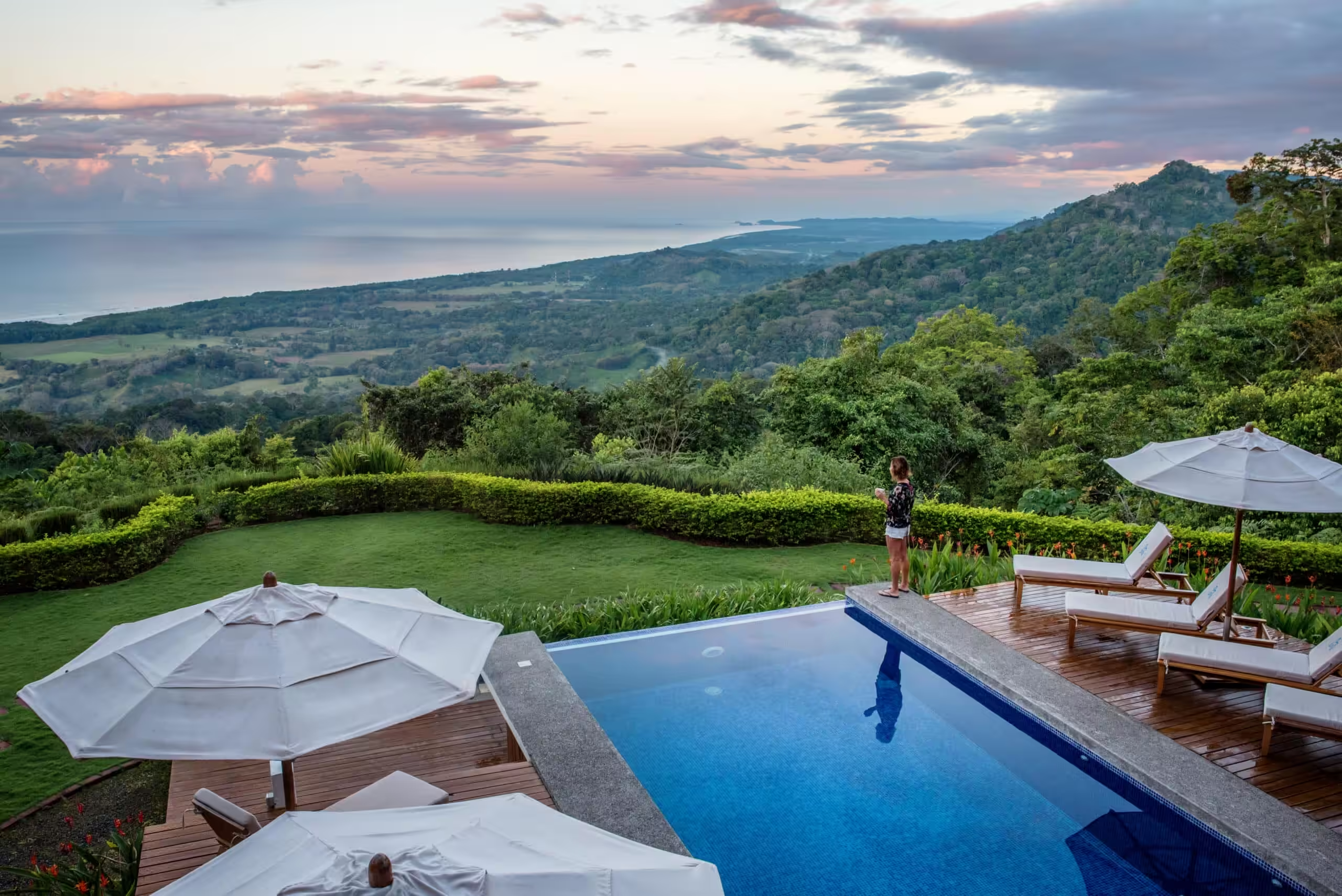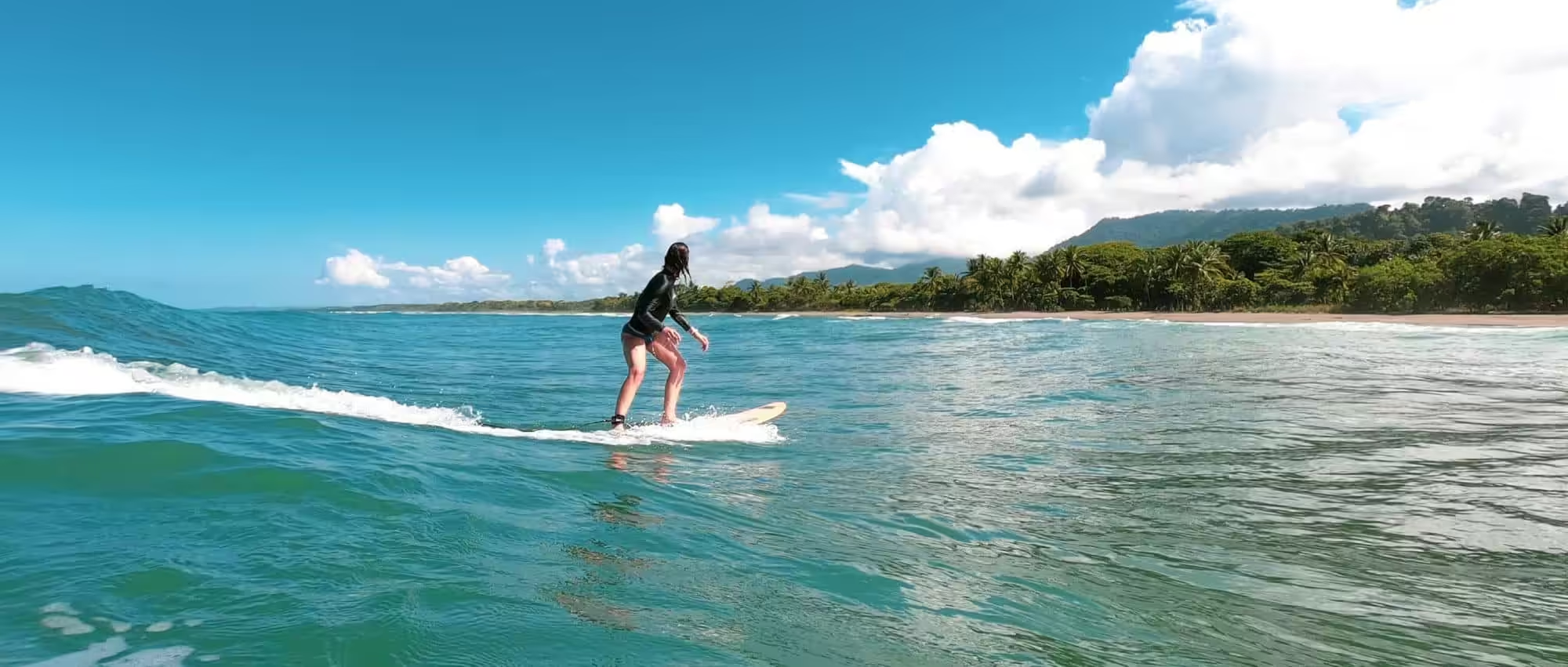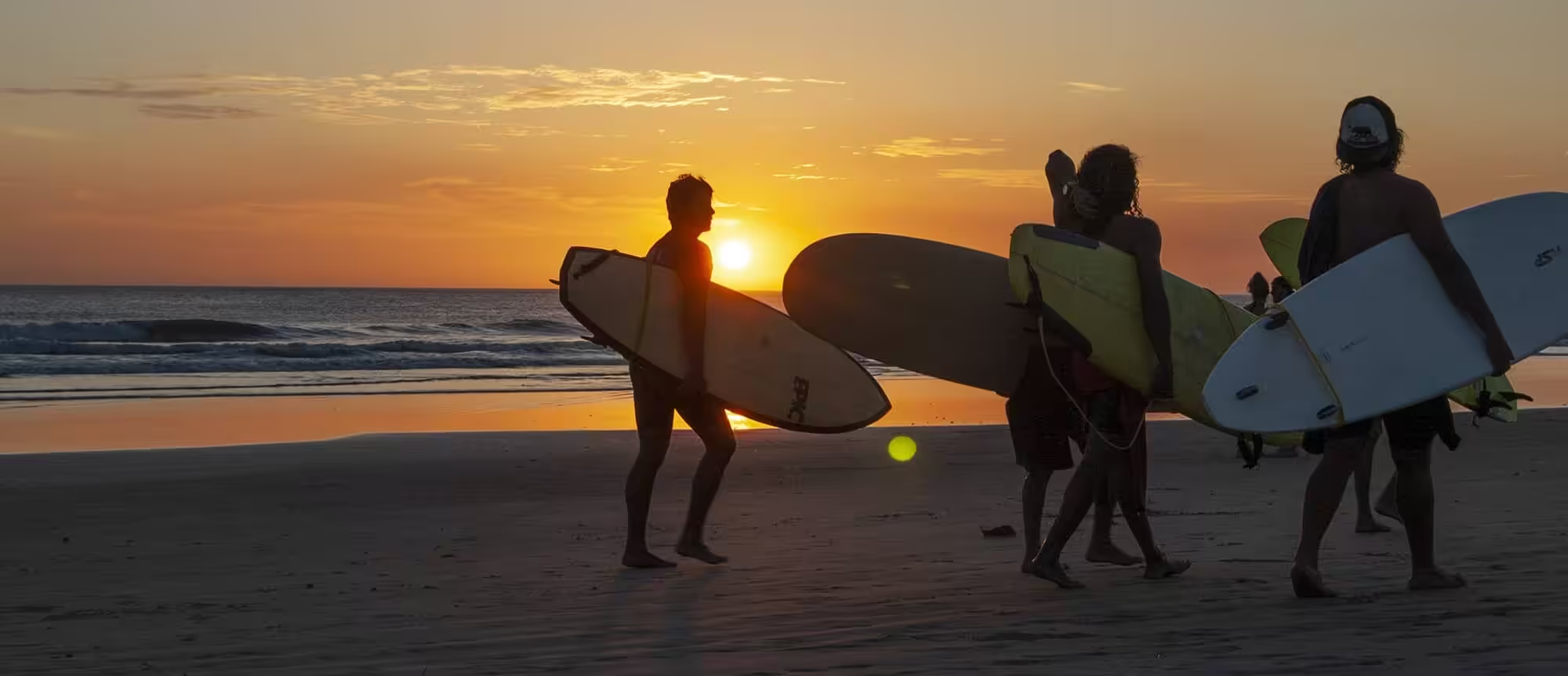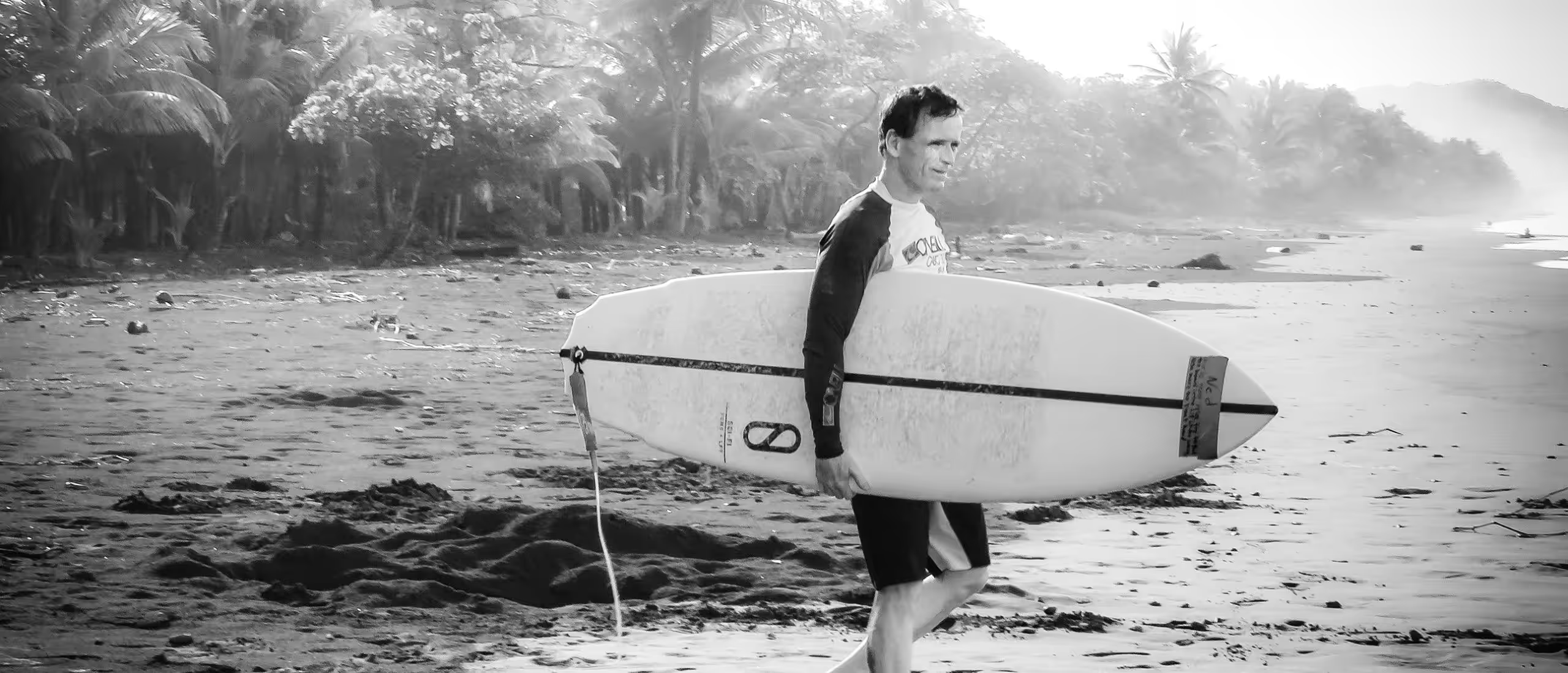Finding Your Voice: Blogging Tips from Paradise – A Beginner’s Guide to Authentic Travel Writing
At Kalon Surf, we’ve witnessed something beautiful over the years. Guests arrive at our luxury surf camp in Costa Rica with cameras and phones ready to capture every sunset, every perfect wave, every moment of pure bliss. But increasingly, we’ve noticed something else: many of our guests want to do more than just post photos. They want to write about their experiences, to share the deeper transformation that happens when you disconnect from daily life and reconnect with the ocean.
If you’ve ever felt that urge to put your travel experiences into words—whether it’s about your time with us or any other meaningful journey—this guide is for you. Writing about travel isn’t just about documenting where you’ve been; it’s about processing who you’re becoming.
Why Write? The Mental Health Magic of Putting Pen to Paper (or Fingers to Keyboard)
Before we dive into the practical tips, let’s talk about why you should consider blogging in the first place. Writing, particularly about meaningful experiences, offers profound mental health benefits that we’ve observed firsthand in our guests.
Processing and Integration: When you’re catching waves at dawn and watching howler monkeys play in the canopy above, your brain is absorbing countless sensory details and emotional responses. Writing helps you process these experiences, turning fleeting moments into lasting insights. We’ve had guests tell us that writing about their surf sessions helped them understand breakthroughs they’d made not just in the water, but in their personal lives.
Mindful Reflection: The act of writing requires you to slow down and truly reflect on your experiences. In our fast-paced world, this mindful pause is therapeutic. It’s meditation in motion, allowing you to fully appreciate the richness of your experiences rather than letting them blur together in memory.
Stress Relief and Emotional Release: There’s scientific backing to what many of our guests have discovered: writing about meaningful experiences reduces stress hormones and can improve overall mental well-being. When you write about conquering that intimidating wave or finding peace in a sunset yoga session, you’re not just recording the moment—you’re processing the emotions and releasing any lingering tension.
Finding Your Authentic Voice: Lessons from Paradise
Start with Sensory Details, Not Instagram Captions
We’ve noticed that guests who write the most compelling pieces start not with “Day 1 at Kalon Surf was amazing,” but with something like: “The salt air hit my face before I even stepped off the shuttle, carrying with it the promise of waves and the earthy scent of jungle that would become my daily meditation.”
Your authentic voice emerges when you trust your senses over social media expectations. Instead of writing what you think people want to hear, write what you actually experienced. The sound of waves at 5 AM. The way your muscles felt after your first two-hour surf session. The taste of fresh mango that was somehow sweeter than any you’d had before.
Embrace Vulnerability Over Perfection
Some of our most memorable guest stories haven’t been about perfect surf sessions or flawless sunset photos. They’ve been about the morning someone cried happy tears in the water, finally feeling strong after a difficult year. Or about the executive who realized they’d forgotten how to play until they found themselves laughing like a child while learning to surf.
Your authentic voice includes your struggles, fears, and moments of uncertainty alongside your triumphs. The blog post about wiping out spectacularly and then getting back on the board often resonates more deeply than the one about riding the perfect wave.
Write for One Person, Not Everyone
Picture someone specific when you write—maybe a friend who’s never traveled solo, or a family member who’s always wanted to try surfing but felt intimidated. We’ve seen guests create their most powerful content when they imagined sharing their story with someone they cared about rather than trying to appeal to a generic audience.
Practical Blogging Tips for Beginners
1. Capture in the Moment, Write Later
During your experiences (whether at our camp or anywhere else), focus on brief notes rather than full sentences. Jot down single words that capture emotions, unexpected observations, or sensory details. The magic happens when you expand on these notes later, allowing your subconscious to process and add depth to the raw experience.
2. Structure Your Stories with Beginning, Middle, and Transformation
Travel blogs that captivate readers follow a simple arc: Where were you before this experience? What happened during it? How did it change you? We’ve had guests write about their first surf lesson not just as “I learned to surf,” but as a journey from fear to confidence, complete with the internal dialogue and breakthrough moments.
3. Use Specific Details to Create Universal Connection
When you write about the specific—the way the sand felt between your toes at 6 AM, the exact color of the water during your best wave—you create something universal. Readers connect not because they’ve been to Costa Rica, but because they recognize the feeling of being fully present in a perfect moment.
4. Don’t Overthink the Platform
Start simple. A basic WordPress blog, Medium account, or even well-crafted social media posts can be your beginning. The platform matters far less than your commitment to authentic storytelling. We’ve seen guests start with simple email updates to friends and family that eventually became popular travel blogs.
5. Write Consistently, Not Perfectly
Set a realistic schedule—maybe one post per week, or even one per month. Consistency builds both your writing skills and your audience. Your voice will develop naturally over time, but only if you keep writing.
Standing Out in a Crowded Digital Ocean
Focus on Internal Journey, Not External Itinerary
The internet is full of “10 Things to Do in Costa Rica” lists. What it needs more of are honest explorations of how travel changes us. Instead of just describing what you did, explore how it felt and what it meant. Share the conversation with a fellow traveler that shifted your perspective, or the moment of silence that brought unexpected clarity.
Build Community, Not Just Audience
Respond thoughtfully to comments. Ask questions that invite genuine discussion. Share other travelers’ stories when they inspire you. The blogs that thrive aren’t just broadcasting—they’re creating community around shared experiences and growth.
Be Patient with Your Voice
Your authentic voice won’t emerge in your first post, or even your tenth. It develops through practice, honesty, and the courage to share imperfect thoughts. We’ve watched guests evolve from tentative first-time writers to confident storytellers, and the transformation always happens gradually, through consistent practice.
Your Story Matters
Whether you’re planning your first trip to a place like Kalon Surf or you’re already back home processing an incredible experience, remember that your story matters. Not because it needs to be extraordinary, but because it’s yours. In a world of curated perfection, authentic voices that share real experiences—complete with vulnerabilities, surprises, and genuine growth—are precious.
Your blog doesn’t need to change the world. It just needs to be true to your experience. And who knows? In being authentic about your own journey, you might just inspire someone else to take their own leap into the unknown.
Ready to start your own adventure story? Whether you’re dreaming of surfing in Costa Rica or planning your next meaningful travel experience, remember that the best journeys begin with a single step—or in this case, a single word on a blank page.



